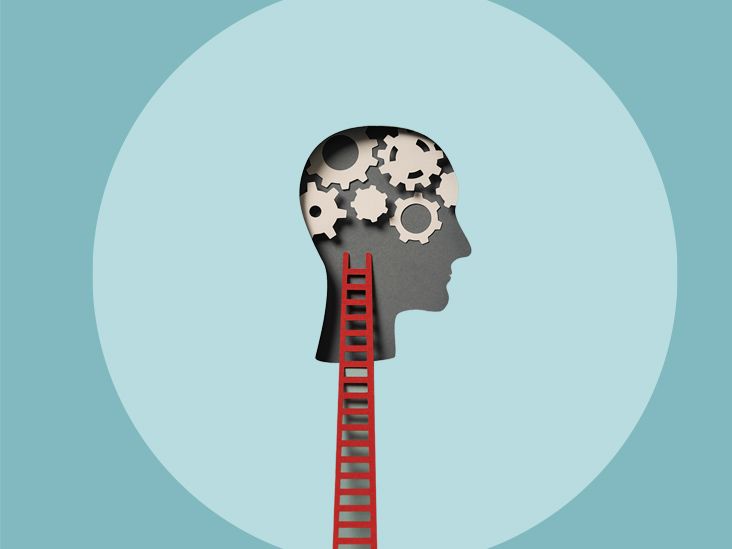
Content warning
This article contains mentions of hallucinations, trauma, depression, anxiety, and suicidal ideation.
If you’re thinking of hurting yourself or are having suicidal thoughts, call or text the 988 Suicide and Crisis Lifeline at 988 or use the chat feature at 988Lifeline.org.
You can also call 911 in the case of a mental health emergency.
My name is Christy Snyder, and my pronouns are she/her. I’m a writer and editor in my mid-thirties. I’ve been an editor at Healthline for several years now, and have worked on health media and academic health content for over ten years.
I experienced an episode of psychosis several years ago, during an episode in which I took myself to the emergency room. My symptoms were a sensory hallucination (smell), confusion, paranoia, fear, and disconnection from reality. I stopped sleeping for weeks on end, which I believe largely contributed to the episode.
I currently take Zoloft (an antidepressant) and Geodon (an antipsychotic). Occasionally I take Trazadone to help me fall asleep. Earlier in my life, I was diagnosed with major depressive disorder (also called clinical depression) and post-traumatic stress disorder. I was sexually assaulted as a child, and was in an emotionally abusive relationship in my twenties, both of which deeply impacted me. I have managed my symptoms over the years with therapy, medication, exercise, creative activities, and communicating with my support system.
It took me a long time to feel ready to talk about psychosis. In fact, it took years before I felt ready. During my recovery from psychosis, I was doing so much work on what had potentially contributed to my first episode — complex trauma, anger, and grief — that it was nearly impossible to come to terms with the self-stigma and fears I had about what others would think at the same time. That came later for me. My recovery has also been mostly through the COVID-19 pandemic, making telemedicine appointments with my therapist and psychiatrist a necessity.
I spoke with Tamara Welikson, PhD, PA & NYS Licensed Clinical Psychologist, Manager of the UPENN Psychosis Evaluation and Recovery Center, about what psychosis is.
“Individuals with psychosis may experience changes in their thinking or behaviors that may be difficult for others to understand. Common symptoms include hallucinations (i.e., hearing, seeing, smelling, tasting, or feeling things others do not), delusions (e.g., unusual beliefs about religion, philosophy, exceptional capabilities, paranoia), believing things others may not believe as true, and negative symptoms (e.g., poor motivation and lack of emotional expression, disorganized thinking, concentration, speech, or behaviors.)
Other people may not understand that these symptoms are created by the brain, feel real, and are perceived as real to the person experiencing them. Untreated psychosis has marked effects on a person’s well-being, functioning, and relationships. Early intervention and treatment provide the best opportunity for improvement and recovery.”
Types of psychosis
brief psychotic disorder substance-induced psychotic disorder organic psychosis (psychosis related to medical conditions such as stroke)postpartum psychosis - major depression with psychotic features (my diagnosis)
Psychosis can also be a symptom or feature of other mental health conditions, including schizophrenia, bipolar disorder, and delusional disorder. Psychosis possibly
Signs of possible psychosis
- a decline in self-care or functioning
- trouble thinking clearly or forming organized thoughts
- suspiciousness or uneasiness with others
- perceptual disturbances (i.e., hallucinations or delusions)
- social isolation
Emerging psychosis or early psychosis can occur in adolescents and young adults (ages 16 to 30). And
After spending the day in the hospital’s crisis response center (CRC), I was transported to a behavioral health center. I received psychiatric care and therapy there. Once I began medication and started sleeping again, I started to feel better. After going home, I continued to see my regular therapist.
I wanted to “get better” quickly — I didn’t know that one’s brain needs plenty of time and care to recover from an episode of psychosis. I struggled for several months with feeling unsure about the medications I was taking at that time. Then I found an early psychosis recovery program. The treatment approach is coordinated specialty care (CSC), which includes therapy, medication management, peer support, employment and education services, family education, and recovery-oriented therapy for families.
Peer support has been invaluable for me. I didn’t have anyone in my support system who had been through psychosis, so talking with a peer who had some shared experiences (although psychosis symptoms are unique to the individual) was incredibly validating and encouraging in my recovery.
For daily stability, I developed a check-in list with my therapist. I check in with myself on a number of items: eating, exercise, sleep & energy, paranoia, suicidal ideation, anxiety, stress level, mindfulness, fun weekend activities, work, and relationship.
Processing that I had had psychosis was difficult. For some time I found myself attempting to “figure it out” and reliving it — as if I was going to find an answer to an unanswerable question. I learned to allow myself to be human and am still working on having self-compassion. With my therapist’s guidance, I wrote my story, which was incredibly helpful in reframing events that have occurred throughout my life.
Sleep is a high priority for me. I now focus on taking good care of my brain and the rest of my body. I routinely practice sitting with all of my feelings. I also practice calming my nervous system through compassionate thoughts toward myself, repeating the mantra: “I am safe and loved.”
I’ve learned some important tools, such as listing the facts of a situation. I also talk with my close friends and partner to check in if I’m feeling triggered.
Here are some products and apps that I’ve found to be helpful in my recovery.
Pricing guide
- $ = under $15
- Price: $
Prior to and after my episode of psychosis, I read many books by naturalist Sy Montgomery. She’s written 31 nonfiction books for both adults and children and has received accolades like lifetime achievement awards from the Humane Society and the New England Booksellers Association.
I love her work because it conveys the unique connections between humans and animals. This book explores consciousness and the soul as well as empathy.
- Price: $
The National Parks Passport is another item that has become dear to me in my recovery from psychosis. It’s fun to travel around the U.S. and get stamps from various parks. Having new experiences has helped me move forward.
Getting a stamp from Alcatraz was very exciting (my boyfriend and I also rode bikes across the Golden Gate Bridge — what a thrill!). For the most part, federal and state park admission in the U.S. is affordable, and so is camping!
There are many common misconceptions about psychosis. While media does not necessarily create stereotypes, I believe it perpetuates them.
Psychosis has been portrayed in movies and television in such a way that people who are having a psychotic episode act out in horrific ways. While people may commit crimes while in psychosis, it’s also often expressed as paranoia, confusion, fear, and suicidal ideation. Antipsychotic medication has also been portrayed in movies with a very negative connotation. 2011’s The Roommate reveals that a character who has been prescribed an antipsychotic has not been taking it, and (spoiler alert) then, of course, she stalks and murders people.
Lady Gaga revealed in an episode of Oprah’s Super Soul Conversations that she had a psychotic episode (she refers to it as a psychotic break) and in her recovery, started taking Olzanapine (also known as Zyprexa, an antipsychotic medication). I sobbed when I heard this — her willingness to be open with the public to reduce the stigma while telling her story was especially comforting to me. She also discussed it in the first episode of the Apple TV+ mental health docuseries, The Me You Can’t See.
I spoke with H. Steven Lawley, MA, LPC, a psychotherapist at the UPENN Psychosis Evaluation and Recovery Center, about a very common misbelief: what treatment looks like.
“A commonly held misconception about psychosis is that once it is diagnosed, the individual will lose the freedom to make their own choices, particularly regarding their treatment. In truth, there are very limited circumstances that require an individual to be involuntarily hospitalized,” Lawley says. “Involuntary hospitalization is only considered when, the individual suffering from psychosis, presents a clear and imminent danger to themselves and the community.”
Lawley also notes that “evidence suggests that early diagnosis and treatment of psychosis is integral to producing the best possible treatment outcomes.”
“If you or someone you know is suffering from psychosis, they may be having some difficulty disclosing their symptoms out of fear that they will lose their freedom, independence, or autonomy. This is a fear that I am sure, we all can relate to.”
He states that “taking an active role in one’s own treatment is an essential part of the recovery process.”
According to Lawley, it’s vital that we address misconceptions about psychosis and support people who are dealing with symptoms of the condition.
I used to be terrified of the word psychosis, and even more scared of what happened to me. With helpful resources, therapists, medication, and along with my support system, I have overcome that fear. Having an experience with psychosis is part of who I am, and part of my story — but it does not define me.







